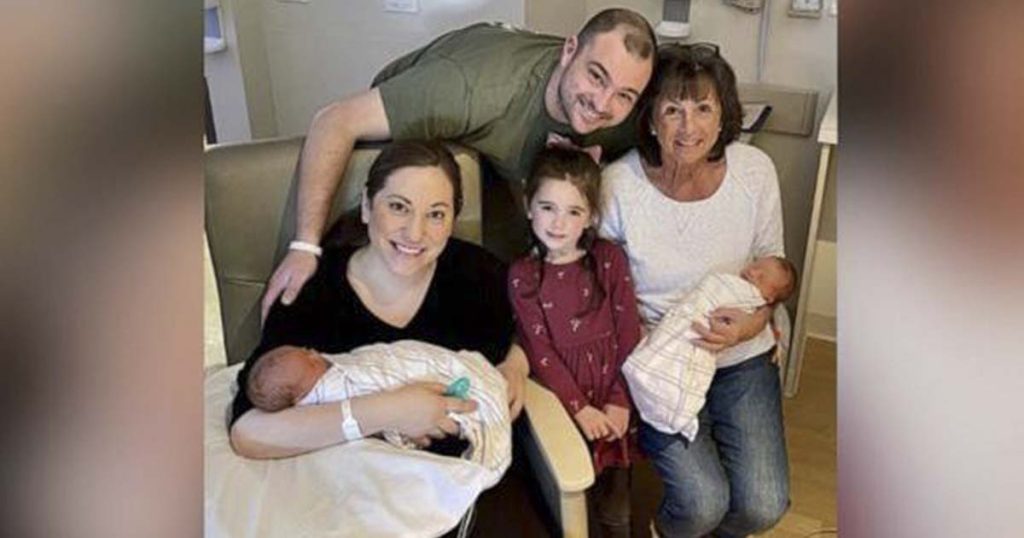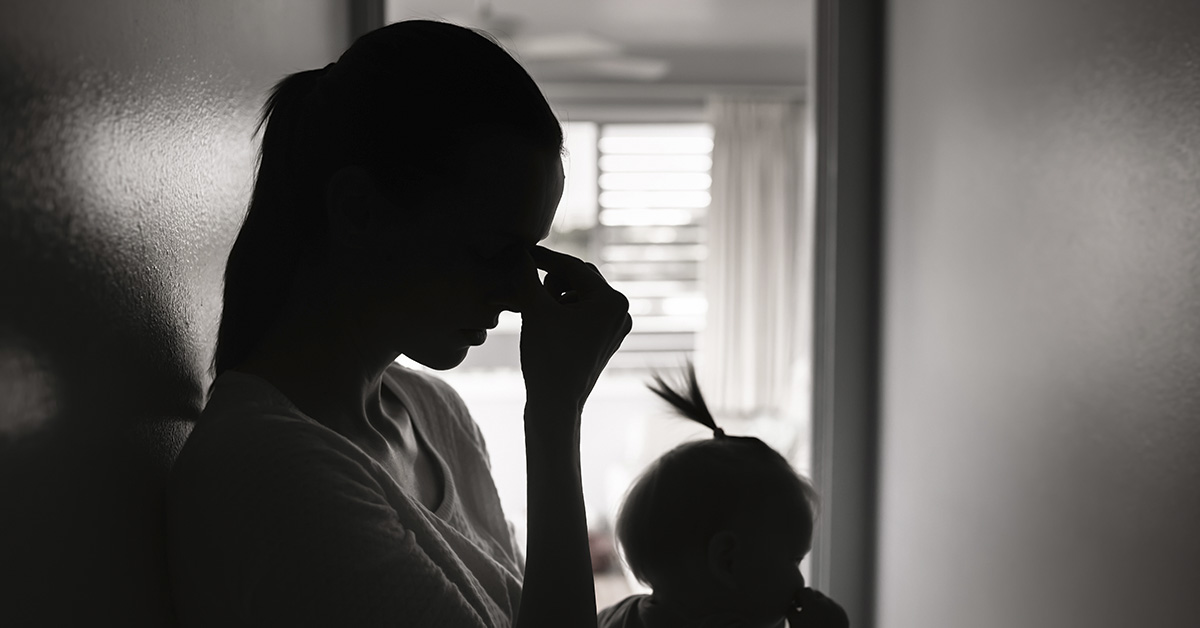The journey to parenthood is often full of challenges. While some can be prevented, postpartum depression is one challenge that some women don’t recover from. Moreover, it’s a challenge not often discussed, leaving women feeling even more isolated and alone. As such, husband, now widower Tyler Sutton, speaks out about his late wife’s suicide.
Postpartum Depression Denial
Pregnancy causes an array of changes, but as things begin to level out, there are certain conditions, often not discussed. It’s chalked up to the “baby blues” and normal for everyone. Although it’s true that every woman goes through significant changes, not everyone goes through the same things. Some women see mild or positive changes. Meanwhile, others face more intense and sometimes fatal changes, a medical condition known as postpartum depression. However, the condition is rarely discussed, and one report estimates roughly half of women don’t receive treatment.
Fortunately, Tyler Sutton has spoken up about the hardships his wife endured so that other women might have a better chance of finding support. Back in 2018, Tyler’s wife suffered from postpartum depression after the birth of their first daughter, Melody.

Recognizing a Problem
“We weren’t that familiar with it, so we were very much in the dark, both of us.” Tyler explained. “I came home one morning, and I just couldn’t recognize the person sitting in front of me. So, we dropped my daughter off with her grandmother and got her to the hospital.” Ariana was hospitalized twice but returned to her old self with some medication and treatment. A happy mother and dance instructor, remembered by those who knew her as “warm” and “upbeat.”
Facing Postpartum Depression
A few years later, the pair decided to add to their family. Twins Everly Irene and Rowan Stephen were born on May 22, 2023, and this time around, the family had made arrangements to get Ariana the support she needed well in advance. “When we finally got pregnant with the twins, we came up with a plan. We got a team together.” Tyler disclosed.
“What happened to her over the span of a few weeks happened this time around within a couple of days,” he said. “And even though we had a plan in place, there was no way for us to predict that this would happen so quickly and so suddenly.” Ariana’s symptoms came on sooner and stronger than they had before, and on May 31, 2023, Ariana committed suicide.
Spreading Postpartum Depression Awareness
“It takes a very strong person to ask for help,” Sutton explained. “If we could just make it the norm asking for help, instead of [women] feeling shame for not being able to do it themselves, because this is a real thing. It is very, very real, very powerful, very dangerous, and shouldn’t be faced [alone].”
Family friends started a GoFundMe page to help the Suttons and raise awareness of postpartum depression. “Please share this campaign with your network to raise awareness about postpartum depression and the importance of mental health care during and after pregnancy. By fostering a supportive community, we can strive to prevent other families from experiencing similar tragedies.” the page begins.
Symptoms of Postpartum Depression
Many women go through this hardship with about 1 in 8 women being affected. Sadly, only a few are treated for postpartum depression, likely because it’s not widely discussed. Not all symptoms apply to everyone, but a few are incredibly easy to spot. Some examples of symptoms include:
- Extreme changes in mood. This can look like very high highs and very low lows, extreme sadness or irritability, or sudden and erratic mood swings.
- Loss of confidence. Babies cry a lot, as it’s their only form of communication. However, some mothers may face feelings of failing, or guilt for not being able to “properly” or “correctly” mother their new babies.
- Odd sleeping habits. It’s common for new babies to keep their whole family up at night, so some sleep disruption is normal. However, women suffering from postpartum depression may struggle to get to sleep or stay asleep.
- Feeling a sense of disconnect. Some new mothers may find it difficult to bond with their baby, or others regarding their new baby. This can also lead to feelings of isolation or loneliness.
- Aching Body. After having a baby, it’s incredibly common to feel some aches, pains, and discomfort. However, sudden and extreme pain with no specific explanation can be the result of postpartum depression.
- Anxiety. It’s normal to be nervous about being a parent. However, extreme or irrational panic or anxiety attacks are another telltale sign that a new mom is battling a case of postpartum depression.
- Confusion or forgetfulness. Postpartum depression can cause dissociation.
- Suicidal Thoughts. In very extreme cases of postpartum depression, the feelings of failure, loneliness, or isolation, lead to suicidal thoughts.
Shedding a Light
“If there was something that I could start right now? Ask the medical community just to make a small change to their routine and add one more line to their checklist of things to do when they meet with people,” Tyler shared. “They should say, ‘We are going to be talking periodically about postpartum depression and the severity and different things you can do about it to prepare for the possibility.’“
Finding Support
Fortunately, there are some helpful resources for tackling postpartum depression.
- Contact helplines. Call or text 1-800-944-4PPD (4773) for postpartum depression support. Or for support regarding suicidal thoughts text or call 988.
- Stay Informed. Knowing all of the possible outcomes of pregnancy and delivery will help you become better prepared.
- Do Something Wonderful. Do something you love for a few minutes every day.
- Therapy. Speaking with a mental health professional may be a great support while working through the many feelings that come with parenting, hormone changes, and battling postpartum depression.
- Medication. Taking medication or even supplements can help women with postpartum depression feel more balanced. Note, always consult with a medical professional before making any decisions.
Sutton misses his wife but has bravely brought his tragedy to light, hoping to make postpartum depression more widely known. “It gives me hope that somewhere, someone will get the help that they need that they wouldn’t have a few days ago.” He said.
Keep Reading: Moms fight for stillbirths to be covered by paid family leave: ‘Does a woman not have a right to heal?’
Sources
- “Identifying Maternal Depression.” CDC
- “Post Partum Depression.” Mayo Clinic
- “Husband speaks out about postpartum depression after wife dies by suicide.” Good Morning America. Katie Kindelan. June, 12, 2023.

